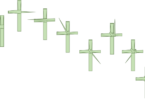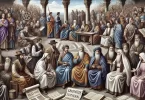by Manuel Faelnar
There are several fundamental things that will make it really difficult for the Catholic and Orthodox Churches to achieve unity.
First among these is the insertion in the Western Church of the filioque clause (the Holy Spirit proceeding from the Father and the Son) in the Nicean Creed around the 800s. This clause was not in the original Creed and the Orthodox say its addition is unauthorized, even heretical. This insertion leads to a very different understanding of the Holy Trinity between Orthodox Christianity on the one hand and Western Christianity (both Catholic and Protestant) on the other.
Second are various new dogmas proclaimed by the Catholic Church:
- Papal Infallibility when speaking ex cathedra. The Orthodox believe infallibility is in the collegiality of Synods and Councils.
- Immaculate Conception. While Orthodox Christians believe in the Immaculate Conception of Mary, it is not a dogma. They also differ from the Catholics on its nature and how it came to be.
- Assumption of the Virgin Mary. The Orthodox say this deifies Mary (I don’t think so, though). The Orthodox use Dormition. The Feast is the same, August 15.
These make the irresistible force of unity meet the imovable object of Catholic dogma. The Orthodox say the Catholic Church changes its teachings all the time while the Orthodox maintain the original doctrines.:
Other obstacles are
- The use by Western Christianity of pagan Greek concepts to explain Christian doctrine started by Anselm of Canterbury and Thomas Aquinas. (To me a modern manifestation of this is the use by Liberation Theologians of Marxist dialectics in interpreting Christian doctrine, The Orthodox won’t accept this,)
- The Augustinian understanding of Original Sin by Catholics (and by Protestants?) I will not dwell on this here.







